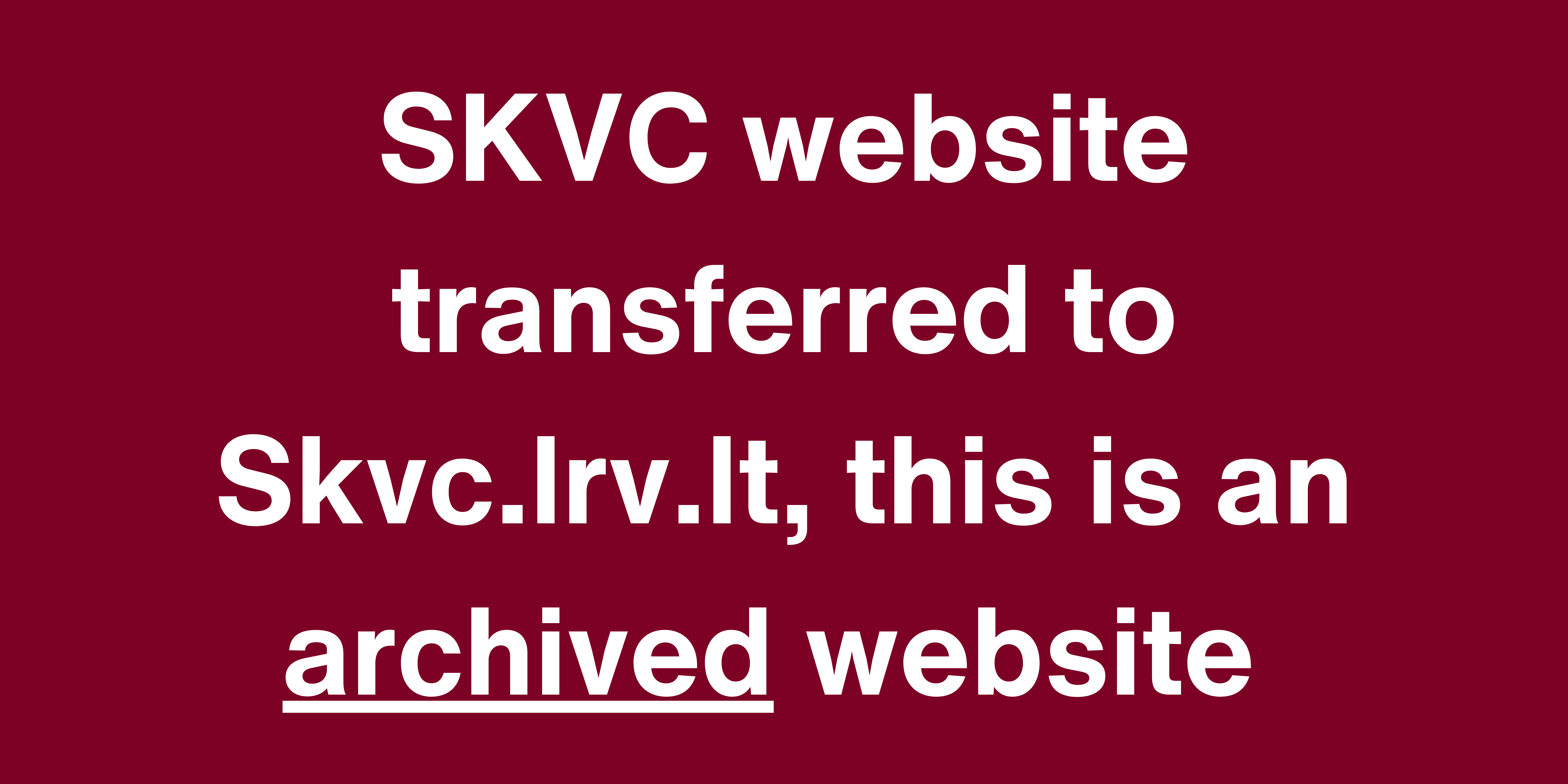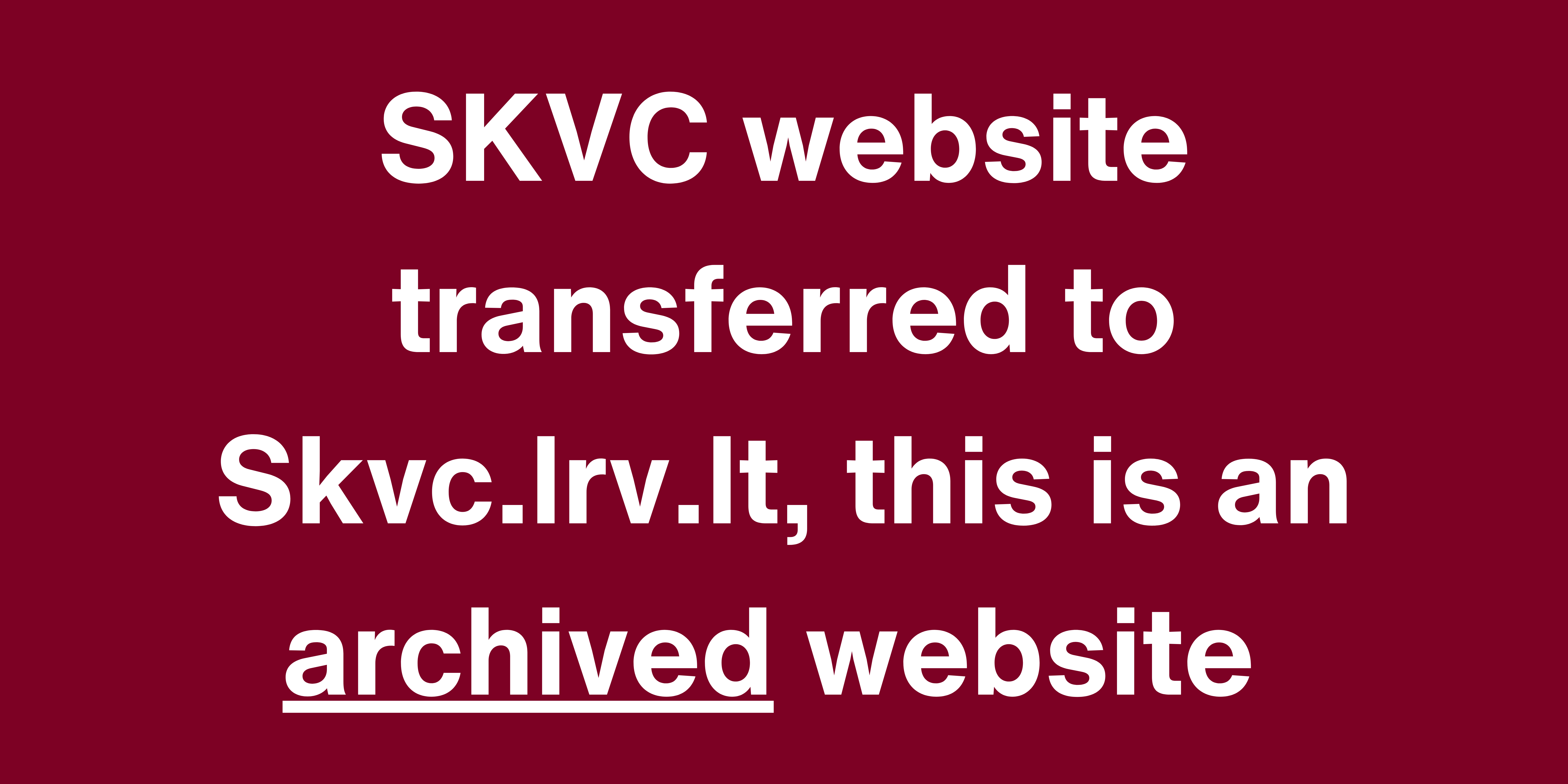Vocational education training (VET) programmes are provided by VET schools (profesinė mokykla), VET centres (profesinio mokymo centras), labour market training centres (darbo rinkos mokymo centras) or other institutions which have the right to provide VET. The names of those institutions may vary.
VET programmes are provided at NQF levels 1-4 (EQF levels 1-4). Pupils who complete VET programmes and pass final examination (consisting of theoretical and practical parts) are awarded Profesinio mokymo diplomas (Vocational Education Training Diploma, VET diploma) since March 2015. The diploma provides right to work according to the obtained qualification.
Kvalifikacijos pažymėjimas (Vocational Qualification Certificate) issued by VET provider together with Kompetencijų įvertinimo pažymėjimas (Competences Assessment Certificate) issued by an accredited institution (for more information regarding such an institutions see the chapter about Quality Assurance in VET below) were used to be award after completion of VET programme and passed final examination in period from December 2012 to March 2015. Up to that period, Profesinio mokymo diplomas and other educational documents could be awarded after completion of VET programmes.
Vocational qualifications awarded after the completion of VET programmes may vary depending on the programme’s curriculum. As an examples could be: Environmental protection worker, Painter, Builder, Plumber, Interior decorator, Bread products baker, etc.
VET programmes
VET programmes are designed for learners over 14 years of age and are created for learners of different age and educational background. There is an opportunity to obtain vocational qualification only or vocational qualification together with general lower (basic) secondary education or upper secondary education and this is relevant for leaners without general lower or upper secondary education.
Pagrindinio išsilavinimo pažymėjimas (Lower (Basic) Secondary Education Certificate) and VET diploma are awarded after completion of VET programmes integrating lower secondary education and VET. Brandos atestatas (Maturity Certificate) and VET diploma are acquired after completion of VET programmes integrating upper secondary education and VET. VET diploma provides a right to work according to the obtained vocational qualification. An access to higher education is provided by Brandos atestatas.
Continuing VET programmes enable learners to improve a qualification, obtain a new qualification or acquire new competencies for a specific job or function.
Currently, types of VET programmes are as follows:
| Programos | Duration | Awarded education document | NQF/EQF level |
Further rights |
|---|---|---|---|---|
| VET programmes leading to a vocational qualification only | 2-3 years | Profesinio mokymo diplomas | 2 | Labour market, further vocational education |
| VET programmes leading to a vocational qualification and obtaining of lower (basic) secondary education | 3 years | Profesinio mokymo diplomas and Pagrindinio išsilavinimo pažymėjimas |
2 | Labour market, further education according to upper secondary education programme |
| VET programmes leading to a vocational qualification only; entrance requirement is lower secondary education | 2-3 years | Profesinio mokymo diplomas and Brandos atestatas |
3 | Labour market, further vocational education |
| VET programmes leading to a vocational qualification and obtaining of upper secondary education qualification | 3 years | Profesinio mokymo diplomas | 4 | Labour market, higher education studies at the basis of Brandos atestatas |
| VET programmes for those who have upper secondary education already | 1-2 years | Profesinio mokymo diplomas | 4 | Labour market, higher education studies at the basis of Brandos atestatas |
| Continuing VET programmes | Up to 1 year | Profesinio mokymo diplomas | 1-4 | Labour market |
Quality Assurance in VET A new 2-year pilot VET programme for hospitality services administrators at NQF level 5 (EQF level 5) started to be provide in 2016. A VET diploma (NQF/EQF level 4) and three year work experience is required to enter the programme.
Provision of VET programmes is licenced activity and licence from the Ministry of Education and Science is necessary for that. VET programmes registered into the State register of programmes and qualifications can be provided only. Since 2010, one of the changes in VET system is transition to national modular VET programmes and designing/approving of VET programmes are under competence of authorised institution – the Kvalifikacijų ir profesinio mokymo plėtros centras (Qualifications and Vocational Education Training Development Centre). Sectoral qualifications standards or, in their absence, VET standards are used for developing of programmes’ curricula. VET providers and enterprises can also initiate and design programmes but the quality of the VET programme has to be evaluated by the Centre.
In VET, since 2003, final qualification’s assessment is separated from education, i.e. the assessment of knowledge, skills and competences to obtain a vocational qualification is independent and is carried out by an accredited competence assessment institution. From 2003 to 2012 organization of the final assessment was delegated to chambers of commerce, industry and crafts, and agriculture. Since 2012, an assessment of competences which were obtained through formal, non-formal, work-based or informal learning is provided by specifically accredited institutions (for example employers’ associations, joint stock companies, chambers of commerce, industry and crafts, public organizations, etc. VET qualifications are awarded when VET providers receive assessment results. The Ministry of Education and Science takes a decision regarding the accreditation of the mentioned institutions. This decision is based on the results of assessment of the institutions which is provided by Kvalifikacijų ir profesinio mokymo plėtros centras.
Useful links
- The list of vocational study programmes and institutions: http://www.aikos.smm.lt.
- Qualifications and Vocational Education and Training Development Centre: http://www.kpmpc.lt.



